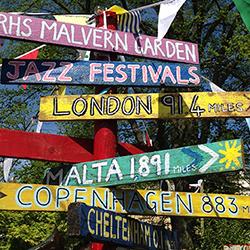
Realising Just Cities
Across the world, it has increasingly been recognised that cities face a range of complex and interrelated challenges. Recognising ongoing injustices in cities everywhere, the second phase of Mistra Urban Futures (2016–2019) was guided by the framework of ‘Realising Just Cities’. Therefore, it was important to think about what just cities should look like, what the practical steps we can take towards trying to achieve them are, and what the impact of these steps are.
The purpose of this over-arching research imperative was to draw across different projects within the Mistra Urban Futures Local Interaction Platforms to reflect on the role of co-production, collaboration and comparison in an effort to achieve more just cities.
Key research questions concerned just cities in different urban contexts, key role-players that can enable – or inhibit – the realisation of just cities in different contexts, and how comparative projects within Mistra Urban Futures were contributing to realising just cities.
Phase One was a baseline study on realising just cities, looking at terminology and definitions, relevant literature on academic works as well as on policy issues. Substantive issues related to social justice and possible strategies for achieving just cities were discussed and presented in the book Co-Production in Action: Towards Realising Just Cities (Mistra Urban Futures, 2016). This baseline study has provided a background to the concept, but may still have some gaps that need to be filled through phase two.
The second phase of the Realising Just Cities research aimed to fill in those gaps from the first phase through thinking across projects within and between the LIPs. In addition to the phase one questions, the following considerations were identified:
- Who are the key role-players in the realisation of just cities in your context?
- What are the key initiatives being undertaken that explicitly focus on increasing urban fairness/equity/justice in your context?
- What are the impacts of these initiatives? (and what are appropriate methods for measuring impact on urban fairness/justice/equity)?
- How can these initiatives be supported to enhance their impact?
The research worked towards three workshops where the LIPs reflected on realising just cities. The research methodology were designed as preparation for each of the workshops. The purpose of the first workshop in early 2018 was to consolidate the baseline study; identify key initiators and role players; and identify ways to measure impact. In preparation for this workshop, projects in the various LIPs needed to fill out a research questionnaire which then was collated by the research leaders and circulated prior to the workshop.
The workshop had the following objectives:
- Share findings from the different LIPs from the questionnaire
- Develop global and local actor maps to identify and represent loci of power and agency that may inhibit/enable just cities
- Devise ways to measure impact (and align with the formative evaluation where possible)
- Design methodology for documenting impact in preparation for Workshop Two
The purpose of the second workshop, which took place in late 2018, was to share findings on measuring impact and identify ways in which impact can be supported. Preparation for this workshop involved implementing the measurement criteria designed in Workshop One. The workshop had the following objectives:
- Share findings on impact of projects
- Refine impact measurement tools (aligned with the formative evaluation where possible)
- Identify preliminary support mechanisms to leverage impact
- Develop a strategy for preparation for workshop three
- Identify academic and other outputs reflecting on this theme
The purpose of the third workshop which coincided with the Annual Conference in late 2019 was to share findings on the impact of phase two projects on realising just cities.
Preparation for the workshop involved applying the impact assessment and sharing this prior to the workshop. It also involved preparing a draft of the proposed publication on Realising Just Cities and other outputs relevant to the theme of Realising Just Cities in the context of Mistra Urban Futures work. This workshop had the following objectives:
- Finalise text of publication on Realising just cities
- Share findings and reflections on impact of projects
- Identify additional information dissemination tactics
Usefulness
The output of the project is supposed not only be academic, but first and foremost user-friendly summaries, policy recommendations, and other kinds of media including the evidence, findings and reflections on how to ‘realise a just city’, presenting impact and impact stories of various strategies and interventions with the aim to support a transition towards more accessible, fair and green cities.
Photo by Scott Webb on Unsplash







